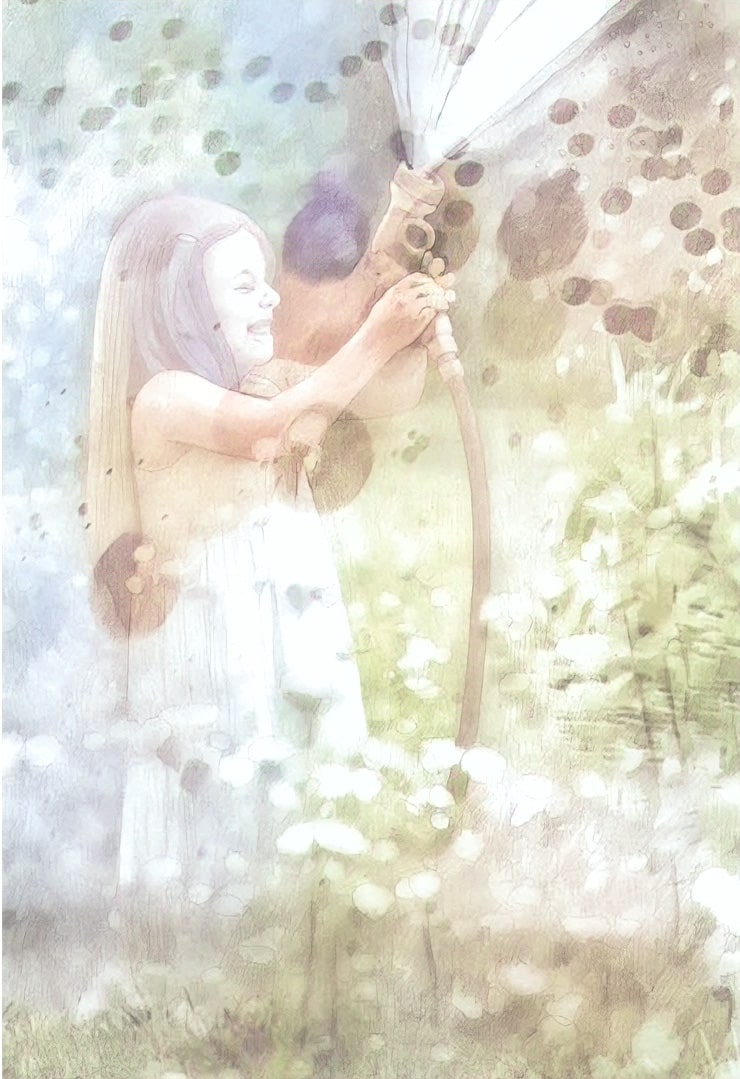Read by Matilda Longbottom
Last spring, a group of gardeners here in our rural North Carolina town wanted to do a spring service project for our community. We decided to create a small garden at a local school, with six-year old children.
This created a lot of excitement among both adults and children, as the 18 children in the class busily planted seeds in the six seedbeds we’d prepared. What they liked the most, though, was watering. Every day they bickered over who would hold the hose to water the seedbeds.
In the midst of all this activity, one child in particular caught my attention—a little girl wearing torn moccasins and a pinafore-type dress, whose brown hair fell, unruly, across her forehead. She stood close to the school entrance, not moving away from the door. She didn’t speak, even when spoken to. She didn’t smile. She didn’t frown. One time I stood right in front of her and, smiling, looked straight into her blue eyes. She didn’t even blink.
“Just ignore Terri,” one of other children told me. “She doesn’t talk to anyone.” I didn’t see how a small child would never smile, especially when given the chance to grow flowers.
Every morning the children took turns watering the seedlings in the beds—every one except Terri. Now and then one of them would “accidentally” wave the hose and spray some classmates. Everyone would laugh when this happened—everyone except Terri.

Just before spring break, the children and I were finishing up for the day. I sat down on the ground and felt my eyes begin to tear up. I didn’t want this project to end.
I felt a sudden tap on my right shoulder and turned around to see that Terri was looking at me. I quickly stood up. “Are you okay?” I asked.
She nodded, then slowly and gently began to wipe the small tears off my cheek. She looked at the hose in my hand. “Do you want to water the plants?” I asked. She nodded again. Within seconds, Terri was watering the seedlings. I noticed a small grin on her face. Suddenly she turned the hose onto her classmates, sprinkling every one. Everyone laughed, including Terri. The teacher approached me and said, “She’s laughing!” She swallowed hard. “Terri is laughing. And she is watering the plants!”
Eventually, all the children returned to the classroom, all except Terri. She kept watering and watering and watering—anything that was on the grounds, including shrubs, trees, and birds. I approached and told her it was time to stop watering. She shook her head. I noticed tears in her baby blue eyes. “I’m sorry, Terri, but we need to stop now,” I told her. She laid the hose down on the ground and I went to turn off the spigot. When I came back, I noticed that Terri was sitting on her knees next to one of the flowerbeds and whispering. “I will take good care of you,” she told the seedlings. “I know how you feel, but lots of water will help you grow up big and strong!”
Two weeks later I returned to the school to check on the project. As soon as I entered the classroom, Terri jumped out of her seat and ran up to me. “I water the plants every day,” she announced proudly. “And I am growing baby plants at my house, too.” Her long brown hair appeared nicely combed and her moccasins had been sewn to cover the holes.
“And when I grow up to be big like you, I am going to help little kids have fun and take care of plants.” She paused, then added, “And I will teach everyone how important it is to water the seeds so they can grow strong.” ❖


 Previous
Previous

